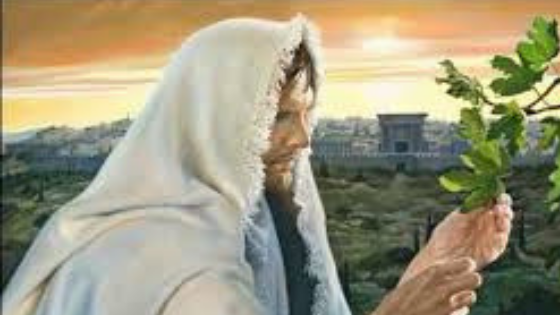
Alternatice Commentary
Twenty-Second Sunday in Ordinary Time (Sept 3, 2017)
Lectionary Readings: Jer 20:7-9; Ps 63; Rom 12:1-2; Matt 16:21-27
Theme: “he . . . must . . . undergo great suffering” (v. 21).
The liturgy for the Twenty-Second Sunday juxtaposes two prophetic figures who exemplify the pain and suffering that seems to be the burden of prophetic ministry. In intense pain, the prophet Jeremiah cries out that he has been overpowered by God to such a point that he has tried to escape his preaching ministry. But God’s hold on him is so great, he cannot escape. “If I say, ‘I will not mention him, or speak any more in his name,’ then within me there is something like a burning fire shut up in my bones; I am weary with holding it in, and I cannot” (v 9).
Jesus, we hear, “began to show his disciples that he must go to Jerusalem and undergo great suffering. . .” In the wake of Peter’s strong rebuke, Jesus warned those wishing to follow him that they must also be prepared to suffer. “If any want to become my followers, let them deny themselves and take up their cross and follow me. . .” (v 25). Earlier in the same chapter we read Matthew’s account of Jesus’ question on the way: “Who do people say the Son of Man is?” (v 13). Matthew, however, makes a significant change in the Markan list (Mk 8:28) by including Jeremiah as one of the responses. As Dan Harrington has pointed out, this is “consistent with Matthew’s general interest in Jeremiah as a figure of Jesus” (247). Matthew quotes Jeremiah three times (2:17; 16:14; 27:9) and alludes to him also three times (7:15-23; 11:28-30; 23:37-39) (Ibid.).
Already in Deuteronomy we read that God will raise up a prophet like Moses and that God will put God’s word in the mouth of that prophet (Deut 18:15, 18). Later, in the call narrative of Jeremiah, when we read, “then the LORD put out his hand and touched my mouth; and the LORD said to me, ‘Now I have put my words in your mouth’” (Jer 1:9), we remember the words of Deuteronomy. Jeremiah is that prophet like Moses. So Matthew’s addition of Jeremiah to Mark’s list links Jesus to this long history of prophetic activity.
Jeremiah preaches on the eve of the Babylonian destruction of Jerusalem and the First Temple, while Jesus’ ministry takes place four decades before the Roman destruction of Jerusalem and the Second Temple. But both the Shared Scripture and the Christian Testament were written, as Jim Sanders used to say, “out of the ashes of two temples,” and in response to the profound crisis brought about by those destructions.
The responsorial psalm is a fitting response to both readings. The psalmist cries out “O God, my God, for you I search. My throat (nefesh in Hebrew) thirsts for You, my flesh yearns for You in a land waste and parched, with no water” (Rbt Alter trans). As Robert Alter comments, “the speaker’s longing for God is so overwhelmingly intense that he feels it as a somatic experience, like the thirsty throat of a man in the desert, like yearning flesh” (116). Several of Jeremiah’s prayers are recorded. Jesus prays three times in the garden of Gethsemane to have the cup removed, but eventually submits to whatever God wills.
For Reflection and Discussion:
(1) Religious folk, sisters especially, are fond of describing themselves as called to be prophets. But given Jesus’ warning in today’s Gospel reading, it would seem that such a claim is probably more demanding than we tend to realize. Today’s readings give us pause for reflection on the prophetic ministry and its “costly” consequences (to cite Bonheoffer). Even Peter, in the Gospel, was not willing to accept that Jesus was to “undergo great suffering.” Take time for some “reality” thinking on the call to prophetic ministry. (2) I finished this July 21st and as I prepared for the feast of Mary Magdala I noticed that Psalm 63 was also the response to the reading from the Song of Songs (3:1-5). It was as if the intense pain of Jeremiah and the “great suffering” anticipated by Jesus was somehow connected to the pain of the beloved searching for the lover “in the streets and in the squares. . .” Does this strike a chord within you?
Bibliography: Rbt. Alter, The Book of Psalms (New York: 2007); D. J. Harrington, The Gospel of Matthew (Collegeville: 1991).
This week’s Sunday Gospel Commentary was prepared by
Helen R. Graham, M.M., PhD., Quezon City, Philippines, Bat Kol Alumna 2002, 2005, 2006, 2009.
Email address: helengraham522@gmail.com
[Copyright © 2017]
……….…………..…….……………………………
PLEASE NOTE: The weekly Gospel commentaries represent the research and creative thought of their authors, and are meant to stimulate deeper thinking about the meaning of the Sunday Scriptures. While they draw upon the study methods and sources employed by the Bat Kol Institute, the views and conclusions expressed in these commentaries are solely those of their authors, and do not necessarily represent the views of Bat Kol. Questions, comments and feedback are always welcome.
…………………………………………………………
~~1983-2017~~
Bat Kol Institute for Jewish Studies, Jerusalem
“Christians Studying the Bible within its Jewish milieu, using Jewish Sources.”
Website: www.batkol.info; gill@batkol.info



